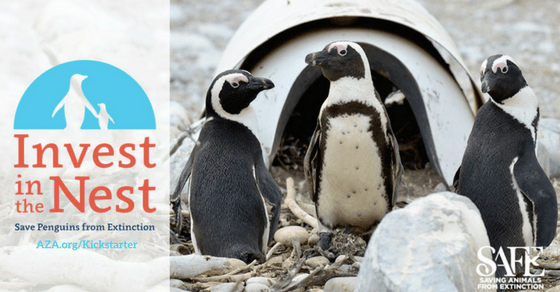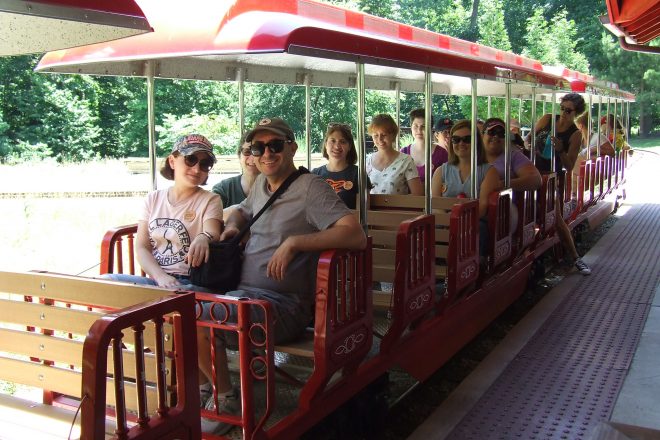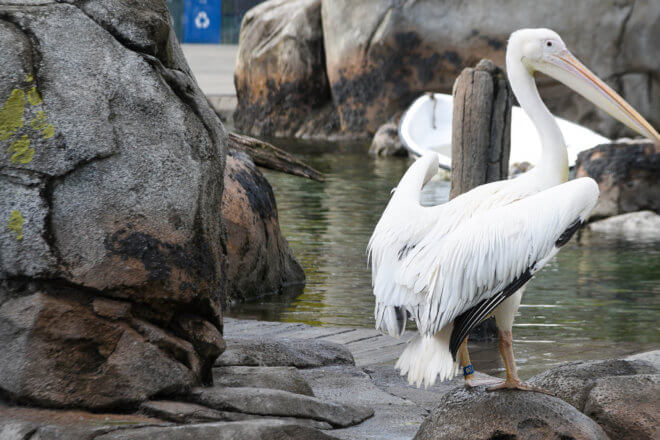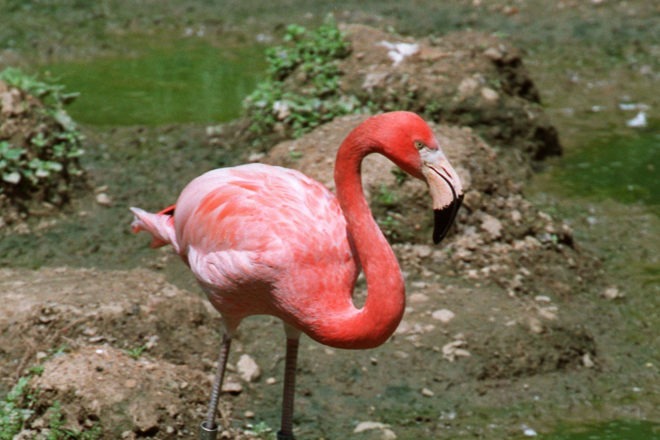The Giraffe House will be closed from Monday, July 14 through Wednesday, July 16. It will reopen for Sneak Peek viewing on Thursday, July 17.
First of its Kind Kickstarter Campaign Launched to Help Save Endangered African Penguins
African penguin populations have been declining for the past few decades. The Maryland Zoo, an accredited member of the Association of Zoos and Aquariums (AZA), is joining with the AZA and other accredited aquariums and zoos to take action and help reverse this trend. Today, they are launching the “Invest In The Nest” campaign on Kickstarter, the ...
Student Art from Base Camp Discovery
Here is a small sampling of the artwork done by visiting students at the Base Camp Discovery Education Center. The art work is placed in the specially designed Base Camp Discovery Mailbox and then displayed on the Base Camp Discovery bulletin board for a few days. Some select pictures will be featured in the Maryland Zoo Blog. Students may also ask questions ...
Maryland Zoo Announces Summer Camp For Adults
BALTIMORE, MD – You can be a kid again at the Maryland Zoo’s Adult Summer Camp. The three-day camp turns grown ups into zoo insiders with special themed tours and behind-the-scenes activities. Campers will learn about animal husbandry and welfare, meet animal ambassadors, make special enrichment for the animals, and see how the zoo works to ...
Student Questions at Base Camp
questions by students from the Base Camp Discovery Mail Box Answers by Jane Marlow, School Program Instructor Camels are herbivores, meaning they are adapted to eat plants. They are not picky eaters, eating many thorny, dry plants that other animals avoid. This makes them very well-suited for desert life, as food might be hard to find. They can also ...
Student Questions at Base Camp Discovery
Jennifer asks: Do zebras eat carrots? Wild zebras are mainly grazers, which means they primarily eat the leaves, stems flowers and seeds of grasses and herbs. They clip off the plants with their broad front teeth (incisors) and grind them up to make them easier to digest with their flattened back teeth (molars and premolars). Grasses, in particular, are ...
Student questions from Base Camp Discovery
Natalie asks: Most plants make their own food! Using the energy from sunlight captured by special cells in their leaves and sometimes their stems, plants can combine carbon dioxide and water to make sugar! They use the energy stored in this sugar to breath and grow. Plants also take up vitamins and minerals (nutrients) primarily from the ground through ...
Parents, Are Your Kids Ready for a Wild Summer?
BALTIMORE, MD — Now you can drive your children wild this summer — sign them up for Summer Camp at the Zoo! Campers experience a unique, week-long day camp that allows them to explore the natural world of animals and their habitats, right here at the Zoo! Each camp is conducted by a Zoo Educator assisted by two adult camp counselors, with each ...
Get Ready for a Wild Summer!
Now you can drive your children wild this summer — sign them up for Summer Camp at the Zoo! Campers experience a unique, week-long day camp that allows them to explore the natural world of animals and their habitats, right here at the Zoo! Each camp is conducted by a Zoo Educator assisted by two adult camp counselors, with each session limited to 20 ...
Student Questions at BaseCamp
The Maryland Zoo does not currently exhibit tigers, red pandas, or armadillos. The Zoo’s exhibits focus on three major geographic regions — Africa, Maryland, and the Arctic. Lions, elephants, giraffes and chimpanzees are some examples of the African animals featured in the African Journey section of the Zoo. Polar bears, northern ravens, Arctic foxes ...
Student Questions at BaseCamp
Flamingos often stand on one leg when resting or sleeping. The question that comes to mind is, why stand on just one foot when (at least for people) it is easier to stand on two legs? There are several theories for why flamingos exhibit this behavior. Some of them are rather absurd. For example, at least one source suggests that flamingos stand on one leg ...
Animal Questions from Base Camp Discovery
In the wild, lions typically live between 14-16 years, with very few lions living beyond 18years of age. In captivity, lions may live up to 30 years. — Jane Marlow, School Programs Instructor




